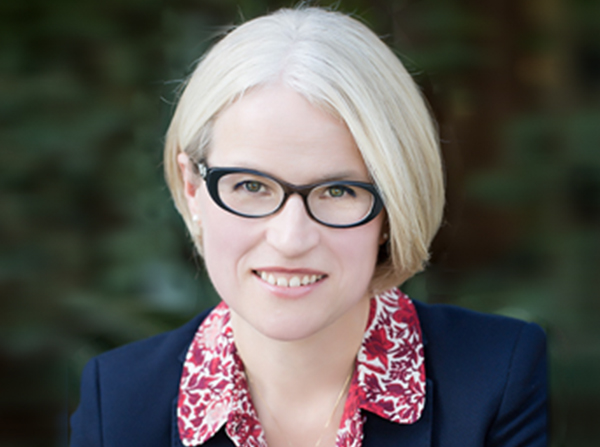
It’s a happy coincidence that Bozena Wrobel’s two principal passions — medicine and teaching — intersect.
Bozena Wrobel, MD, an associate professor of clinical otolaryngology – head and neck surgery and neurological surgery at the Keck School of Medicine of USC and the division chief of rhinology and endoscopic skull base surgery, is a trailblazer in surgical technique and is deeply committed to circulating cutting-edge knowledge to surgeons and specialists worldwide. Even with a busy surgical schedule, she finds ways to share her expertise with residents, students and fellow otolaryngologists across diverse educational venues.
As director of the USC Advanced Endoscopic Sinus and Skull Base Surgery courses, Wrobel has assembled a robust community within the specialty, while expanding her reach as an invited speaker nationally and internationally. More than a decade ago, she organized the first International Endoscopic Sinus Surgery Course in Kajetany, Poland, an event now held annually in her native country. Most recently, Wrobel traveled to South Africa and led the first American Rhinologic Society (ARS) Sinus and Skull Base Course at the Stellenbosch University in Cape Town.
“Over the years, we’ve achieved milestones on the national level — the first to combine sinus and skull base continuing medical education courses for the community, the first to establish collaborative skull base courses for otolaryngology and neurosurgery residents, and the first endoscopic sinus course for upcoming ARS fellows, hosted at USC,” she says. The Sinus Surgery Course, held at USC in March 2019, drew attendees from countries such as Saudi Arabia, Australia, New Zealand and Canada, as well as from academic medical centers in Pennsylvania, South Carolina and Texas.
The curriculum also highlighted the region’s collective strengths, welcoming researchers and educators from Southern California institutions, including the University of California, Los Angeles; University of California, Irvine; University of California, San Diego; Kaiser Permanente; Cedars-Sinai Medical Center; and Loma Linda University Medical Center. “This is a USC course, but we’re embracing our relationship with local universities as a way to evolve a community to improve patient care,” Wrobel says.
Wrobel has also helped introduce other innovations into her courses. “Normally, we do the lectures and dissection in the lab, but we’ve now introduced at our last course a 3-D model for dissection,” she explains. The resin model of a human skull and sinuses — originally generated from CT scans and created by Peter-John Wormald of the University of Adelaide — offers the tactile feel of a skull, while eliminating some of the complex issues related to working with cadavers. It’s a breakthrough in training that could be transformative, Wrobel believes.
Wrobel collaborated with Gabriel Zada, MD, an associate professor of neurological surgery at the Keck School and director of the Skull Base Therapeutics Center at Keck Medicine of USC, to develop and certify a cadaver perfusion training model for carotid injury — one of just a handful of simulation models of its type. Carotid injury during endoscopic skull base surgery is a devastating complication and can result in stroke or even death, so training surgeons in how to manage the procedure is crucial to improving patient outcomes.
“The model captures a very real situation — it’s exactly like in the operating room during the skull base surgery,” Wrobel explains. “On this simulated cadaver model, you expose the real vessels at the skull base, like during the pituitary surgery, and use paint to replicate blood flow through the vessels, walking surgeons through the ABCs so they won’t panic when it happens in real life. We put fitness trackers on participants and created a mock operating room environment, where the training model and surgeon are connected to monitors to track the perfusion and heart rate. We showed that despite the fact that doctors were nervous and heart rate and blood pressure went up — which is realistic and normal — they still performed really well after they gained the psychomotor skills through training on the USC model.”
Summer 2019 promises to be very busy for Wrobel and Zada, with a series of lectures and trainings scheduled at RhinoWorld Chicago and the North American Skull Base Society (NASBS) summer workshop in New Orleans.
“Working with Dr. Zada, we have developed a world-class endoscopic skull base surgery program at USC, with education, research and comprehensive clinical care for patients with sinonasal malignancies, anterior skull base pathology and pituitary tumors,” she says.
“At this point, we’ve got the strongest endoscopic skull base program in Southern California and well beyond,” Wrobel concludes, proudly highlighting her team’s achievements.
To make a gift to the USC Tina and Rick Caruso Department of Otolaryngology – Head and Neck Surgery, click here.